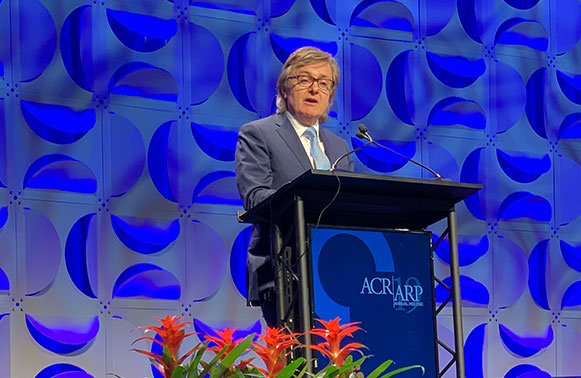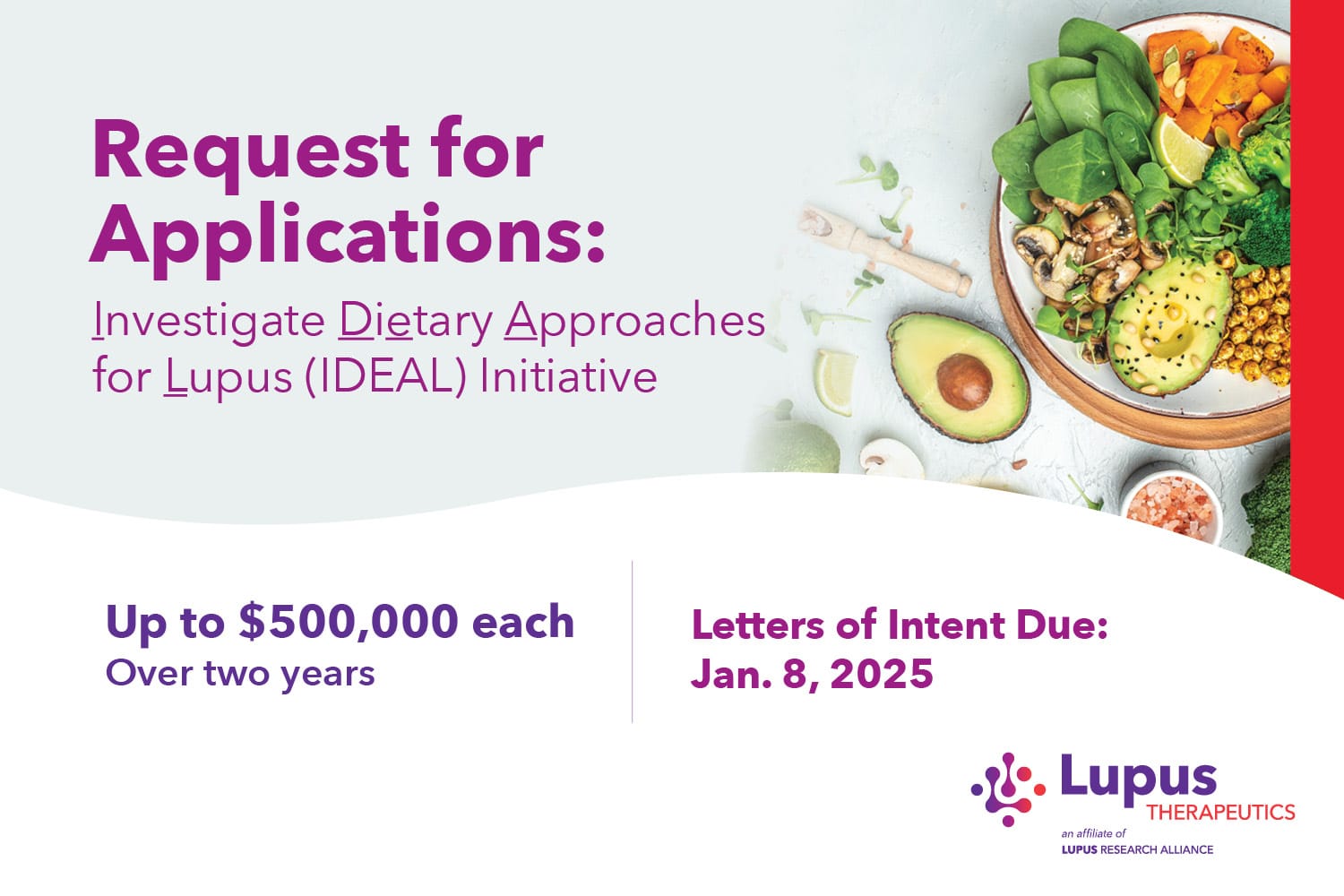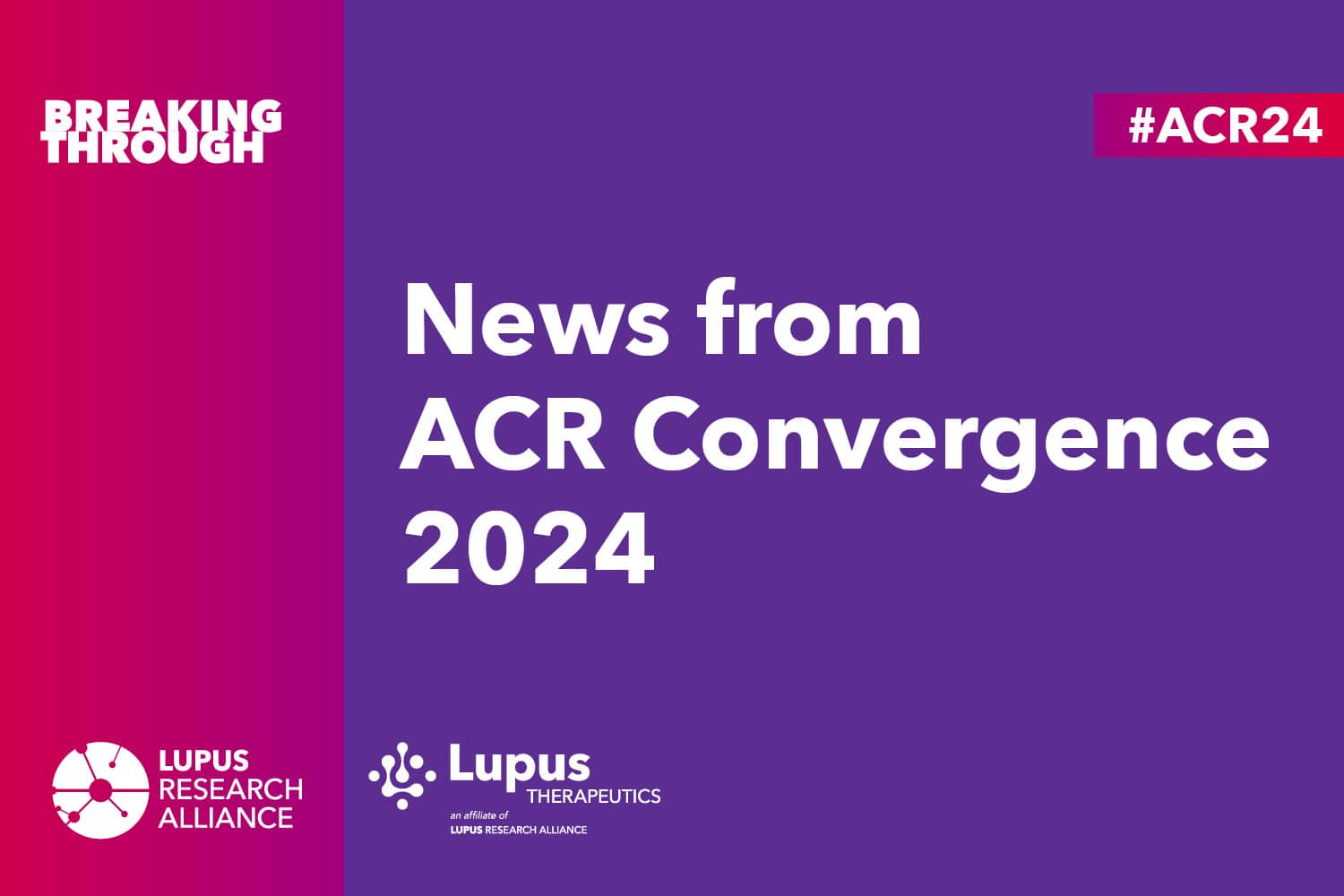Lupus Research Alliance Response to Positive Data from Phase 3 Anifrolumab Trial Presented at 2019 ACR/ARP Annual Meeting

Lupus Research Alliance Response to Positive Data from Phase 3 Anifrolumab Trial Presented at 2019 ACR/ARP Annual Meeting
NEW YORK, NY – November 11. The Lupus Research Alliance (LRA) congratulates AstraZeneca on new positive results from the Phase 3 TULIP-2 trial (Treatment of Uncontrolled Lupus via the Interferon Pathway) presented at the 2019 ACR/ARP Annual Meeting. The data showed that the investigational biologic treatment anifrolumab significantly reduced disease activity for people with lupus.
“This is the first Phase 3 to successfully show effectiveness since Benlysta® and is welcome news to a community waiting for more treatment options,” noted Kenneth M. Farber, President and CEO of the Lupus Research Alliance. “The results of the TULIP-2 trial validate years of research by our funded scientists on understanding the interferon pathway which anifrolumab targets.
Anifrolumab an Outcome of Early Interferon Research
Anifrolumab works by hindering a group of proteins produced by the immune system called type I interferons that promote inflammation. Research has shown that more than 50% of adults and most children with lupus have elevated interferon levels. The Lupus Research Alliance has played a key role in unraveling the role of interferon over the past two decades through the support of more than a dozen critical studies.
“Having recognized its importance, the LRA invested substantially in understanding the interferon pathway, and many of our funded researchers have delivered significant discoveries in this area,” Mr. Farber said. “One in particular, Mary K. Crow, MD, is a recognized world leader in characterizing the role of interferon in lupus and suggesting that the interferon pathway might be a therapeutic target. Without this early work, the idea of blunting the impact of interferon with a drug like anifrolumab might never have been contemplated.”
“Having spent a number of years working to understand the mechanisms that result in sustained production of type I interferon in lupus patients and its relationship to disease manifestations, I am particularly gratified to see these positive results in a late-stage study,” commented Dr. Mary Crow, Co-chair of the Lupus Research Alliance Scientific Advisory Board (SAB) and Physician-in-Chief/Chair of Department of Medicine at Hospital for Special Surgery. “Of course many investigators throughout the world contributed to our current understanding of this important immune mechanism. In my role at the Lupus Research Alliance, it has been exciting to participate in shaping the research that has deepened our understanding of this significant autoimmune disease.”
Principal investigator Professor Eric Morand of Monash Health in Australia commented, “These results finally and definitively prove the interferon hypothesis for lupus, potentially unlocking a host of new treatment approaches. They also break the impasse on trial success that has previously rested in part on outcome measures. We all hope this leads to approval of anifrolumab and great outcomes for patients with lupus.”
Anifrolumab Shows Promise for Reducing Disease Activity and Flares
Using an outcome measure termed the British Isles Lupus Assessment Group (BILAG)-based Composite Lupus Assessment (BICLA), anifrolumab met its primary endpoint, meaning that treatment with anifrolumab resulted in significant and meaningful reduction in disease activity in all organs with no new flares. As measured by BICLA, 47.8% of patients responded to treatment with anifrolumab compared with 31.5 who received placebo. The rate of flares was also somewhat lower among those treated with anifrolumab.
The study also succeeded in meeting key secondary endpoints: 51.5% of those treated with anifrolumab were able to reduce their doses of the steroid prednisone versus 30.2% taking placebo. According to another standard measurement tool, 49% of patients showed improvement in severity and degree of skin damage compared with 25.0% of those on placebo.
No new information on safety was identified. Herpes zoster was more common in those receiving anifrolumab (7.2%) than placebo (1.1%). Serious adverse events were less frequent among anifrolumab- than placebo-treated patients (8.3% and 17.0%, respectively), as were adverse events leading to treatment discontinuation (2.8% and 7.1%). One death occurred in the anifrolumab group due to pneumonia. Few patients (0.6%) developed antidrug antibodies.
About the Lupus Research Alliance
The Lupus Research Alliance aims to transform treatment while advancing toward a cure by funding the most innovative lupus research in the world. The organization’s stringent peer review grant process fosters diverse scientific talent who are driving discovery toward better diagnostics, improved treatments and ultimately a cure for lupus. Because the Lupus Research Alliance’s Board of Directors fund all administrative and fundraising costs, 100% of all donations goes to support lupus research programs.



